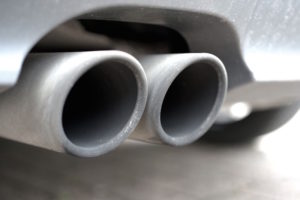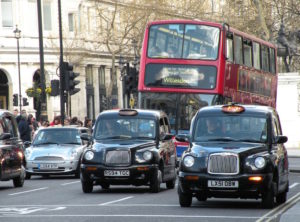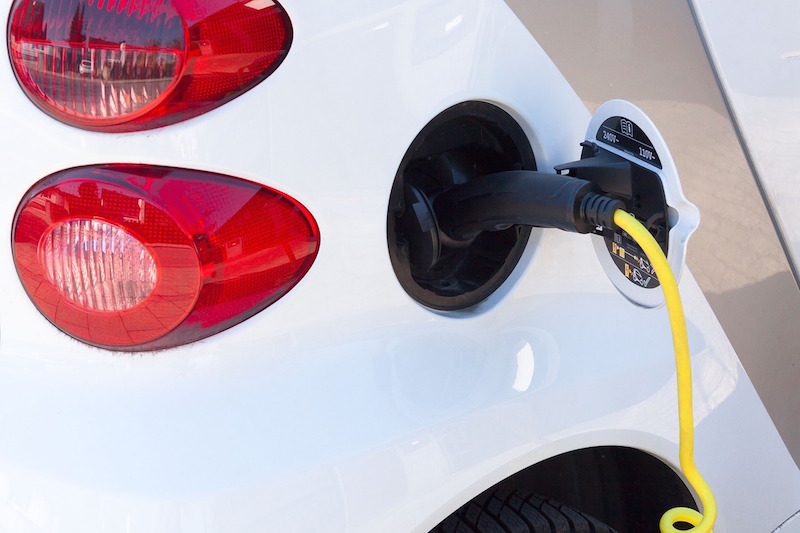From protecting the planet to saving cash, there are lots of good reasons to make the switch to an electric van. But is it always the best option? And what does it mean for your van insurance?
To help you decide, here are seven reasons to switch to a plug-in and our tips to make the shift as easy as possible.
 1) It can save you money
1) It can save you money
Yes, it may cost slightly more to purchase an electric van than the diesel or petrol equivalent. However, depending on where you do your business, the amount you potentially stand to save in the long run could be substantial.
- Saving money on fuel with an electric van
The amount you’ll pay to charge your electric van will depend on where you charge it and the cost of electricity. EV charging solutions estimate you’ll save around 1/5 by switching to electric. That means if your weekly fuel bill is currently £100, you can slash that down to £20.
- Forget about congestion charges
If you work in London, you’ll already know that the congestion charge stacks up. It’s currently £11.50 a day to drive in this zone of central London, but if you drive an electric van, you don’t need to pay. And don’t forget the new Ultra Low Emission Zone (ULEZ) in London charges an extra fee of £12.50 if your van does not meet minimum standards. But again, you’re exempt from charges if you drive an electric vehicle. And it’s not just London. Clean air zones are also being introduced in other UK cities, including Southampton, Birmingham, Leeds, and Glasgow.
- Free road tax
When you switch to an electric van, you can save your cash with £0 road tax. Just bear in mind that you will still have to pay the extra tax fees for vehicles with a list price of £40,000 or above even if it is electric.
 2) You can do your bit for the environment with an electric van
2) You can do your bit for the environment with an electric van
Switching to electric is excellent news for the environment as it means one less diesel van out there chugging out choking fumes. But this benefit is not limited to the warm fuzzy feeling you’ll get in the knowledge you’ve probably helped save a baby polar bear. The eco-friendly benefits of switching to a plug-in can be great PR for your business. It helps to reinforce your commitment to sustainability, and that is a feel-good factor that will impress your clients.
3) There is less maintenance to worry about
With an electric van, you won’t need to worry about things like checking the oil and replacing fan belts. That can save you time and money.
4) An electric van is relaxingly quiet to drive
The electric engine creates virtually no noise, making it pleasant and relaxing to drive. You’ll also get extra brownie points if you do regular drop-offs in residential areas. That silent engine will keep the neighbours happy even if you’re outside their window at 5am!
5) If you do mainly shorter journeys, there’s another compelling reason to switch away from diesel
To meet strict emissions rules, diesel engines have a diesel particulate filter (DPF) fitted. This traps harmful particles and burns them off. But to work correctly, your journey needs to be at least 15 miles. If you’re making shorter journeys, the filter won’t get to temperature and will eventually clog up. The costs of replacing the filter can run into the £thousands, meaning a serious dent in your finances. With an electric van, you don’t need to worry about this future cost.
6) Take advantage of government grants
If you do decide to opt for an electric van, you can take advantage of the government grant for low emission vehicles. This can mean savings up to £8,000 (20% of the purchase price) as long as you choose a model with emissions below 75g/km.
 7) Van scrappage scheme for ULEZ
7) Van scrappage scheme for ULEZ
If you’re operating in London, you can take advantage of TfL’s van scrappage scheme. This pays small businesses £6,000 when you replace your old diesel (pre-Euro 6) or petrol van with an electric van. Find out more here.
Are there any downsides to using an electric van?
Of course, there are some negative points to switching to an electric van. The main two are:
- The limited range between charging
The main disadvantage between electric and diesel power is the range between charges. The best on the market (like the Nissan e-NV200) currently have an official range up to around 170miles, although the real-world range may be less than that. Manufacturers are investing in increasing ranges, and the range you can expect is getting better.
- Not enough charging points
One thing that puts off many would-be electric van drivers is the fear of running out of charge. Most urban areas are already well served for electric charging points. Things are catching up in rural areas now. The government is committed to encouraging electric vehicle use, and the number of rapid charging points across the country increases every day.
 What about electric van insurance?
What about electric van insurance?
Another practical consideration is your van insurance. It may cost more to insure an electric van compared to diesel or petrol. That’s for a variety of reasons. Firstly, electric vans can cost more than their fossil-fuel counterparts. Repairing them can be more expensive too if you have an accident. And insurance is based on risk. Electric vans are a relatively new development, so there is less data for the insurance companies to crunch. As electric vans rise in popularity, it’s likely that electric van insurance will become more competitive.
Find the best price on electric van insurance
If you’ve got an electric van, Park Insurance can help you find the best value insurance. We’re an independent insurance brokerage, so we’re free to shop around some of the UK’s most trusted insurance companies, and we’ll negotiate hard on your behalf. Whether you need to insure your van or fleet of vans for business, pleasure or both, we can source comprehensive cover for your peace of mind. Call us today on 0117 955 6835 or get a quote.

